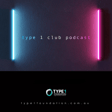
Episode 22: From Celiac to Type 1: Emily’s Double Diagnosis Journey
In this episode of the Type 1 Club Podcast, Jacqui sits down with 23-year-old Emily Searle — a university student, childcare educator, and passionate Type 1 diabetes advocate living in Sydney.
Diagnosed with celiac disease at age three and Type 1 diabetes just one week before graduating high school at 17, Emily shares her powerful and deeply personal story of navigating two chronic conditions. From initial denial and needle phobia to learning how to advocate for herself and find community, Emily’s journey is filled with resilience, humour, and wisdom.
She speaks candidly about managing diabetes through exams, dating, travel, endometriosis, and the complex relationship with food — especially when living with both diabetes and celiac. Now a proud voice in the Type 1 community, Emily shares her life on Instagram to reduce stigma, empower others, and remind everyone that diabetes doesn’t define you — but it can shape you.
💬 What We Cover:
- Emily’s diagnosis just before HSC and her biggest fears at the time
- The mental and social challenges of injecting at school and in public
- Living with both Type 1 and celiac — and how it affects food, emotions, and planning
- Navigating needle phobia and learning to self-manage from day two
- Why she shares her journey on Instagram and what it means to build community
- The emotional impact of highs and lows, and how her friends and boyfriend help
- How she’s built a full, beautiful life post-diagnosis, with study, work, travel, and more
- Her unique hypo treatment (spoiler: it involves café sugar sticks!)
📲 Follow Emily:
Instagram: @EmilyT1D
She shares her Type 1 life to connect, empower, and raise awareness.
Further Resources:
Type 1 Foundation Website
Follow us on Instagram
Join the Facebook Group
